BLOOD SPORT
Balule trophy hunt — how not to shoot an elephant
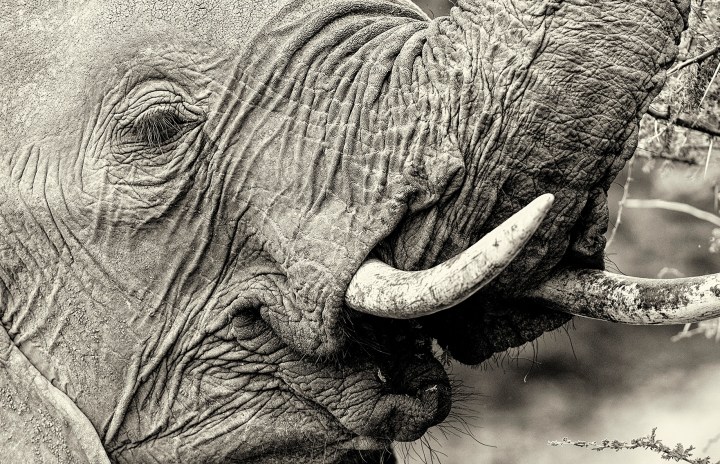
This is a story about an apparently illegal kill licence, a botched trophy hunt, the gratuitous pain and suffering of an elephant and the right to shoot iconic wild animals.
This article has been updated post publication to include a response from Balule Nature Reserve below. Daily Maverick apologises to Balule for not seeking comment ahead of publication.
Hunting does not provide the precision kill of an abattoir, but what happened in Maseke Game Reserve on 3 September was beyond acceptable, even in hunting circles. Apart from a botched hunt, it may also have been illegal.
Maseke is within the Balule Nature Reserve, which, in turn, is in the Associated Private Nature Reserves (APNR), an area to the west of Kruger National Park. There are no fences between Kruger and the APNR, so animals can and do move freely between the two.
A paying client took a shot at a bull elephant but merely wounded it. The professional hunter accompanying him then pumped four more bullets into the animal but also failed to bring it down.
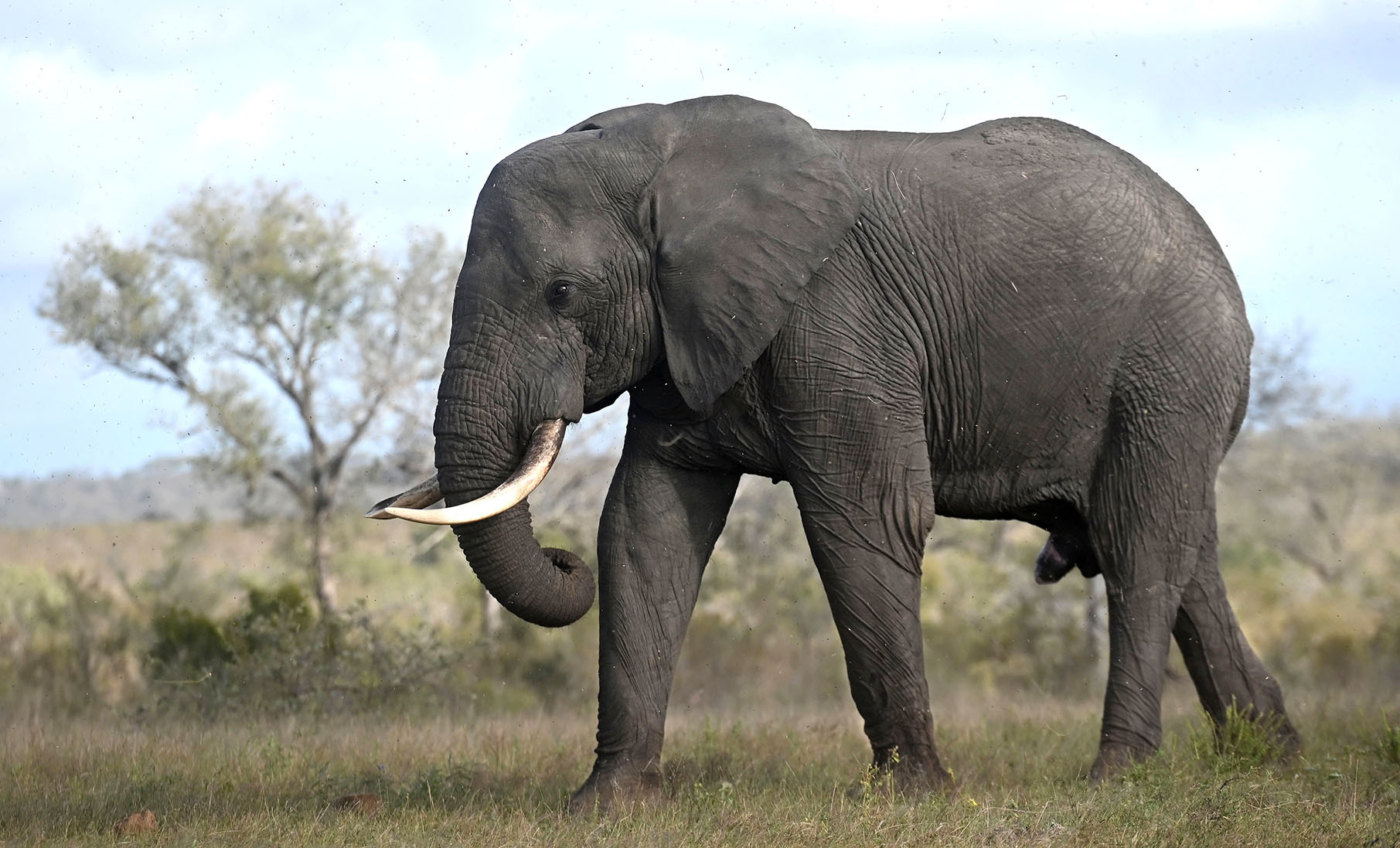
An elephant bull in the Kruger National Park, Limpopo. (Photo: Glalo Images / Beeld / Deaan Vivier)
The elephant took off towards the Grietjie section of the Balule reserve, a non-hunting area, pursued by the hunting party. They couldn’t keep up, so a helicopter was called in. By then the animal was in Grietjie and the chopper drove the wounded animal back into Maseke where it was shot and finally killed, its body by then carrying eight bullets.
This incident is not a hunting outlier. In 2018 in Maseke, a young elephant was shot 13 times — screaming in pain within view of traumatised guests at a lodge in Parsons Nature Reserve bordering Maseke. The professional hunter in charge, Sean Nielsen, claimed the elephant had been “shot in self-defence”. Nielsen is the hunting concessionaire for Maseke Game Reserve which is owned by the Maseke tribe.
According to Sharon Haussmann, Balule’s then chairperson, that hunt had the correct permits in place, but she said the incident “did not comply with the sustainable utilisation model of ethical hunting in accordance with the hunting protocol that governs all reserves within APNR and to which Balule and hence Maseke are bound.” That would also go for the latest hunt.
Was it legal?
There is a question regarding the legality of the permit for the Maseke hunt. According to the Humane Society International-Africa (HSI/Africa), the issuing of a hunting permit contradicts a high court interim interdict which prohibits the allocation of permits for trophy hunting of African elephants, leopards and black rhinos in South Africa.
It followed a successful legal challenge brought by HSI/Africa in 2022 against the Department of Forestry, Fisheries and the Environment (DFFE) and others. Judge Patrick Gamble found that the Department of Environment had failed to comply with the consultative process prescribed by the National Environmental Management.
Pending a review, the minister was therefore not permitted to issue a quota for trophy hunting and export of elephant, black rhino or leopard without valid non-detriment findings. The review hearing is only scheduled for January 2024 so has not been held. Therefore, according to HSI/Africa’s executive director, Tony Gerrans, the prohibition on hunting of trophies still stands.
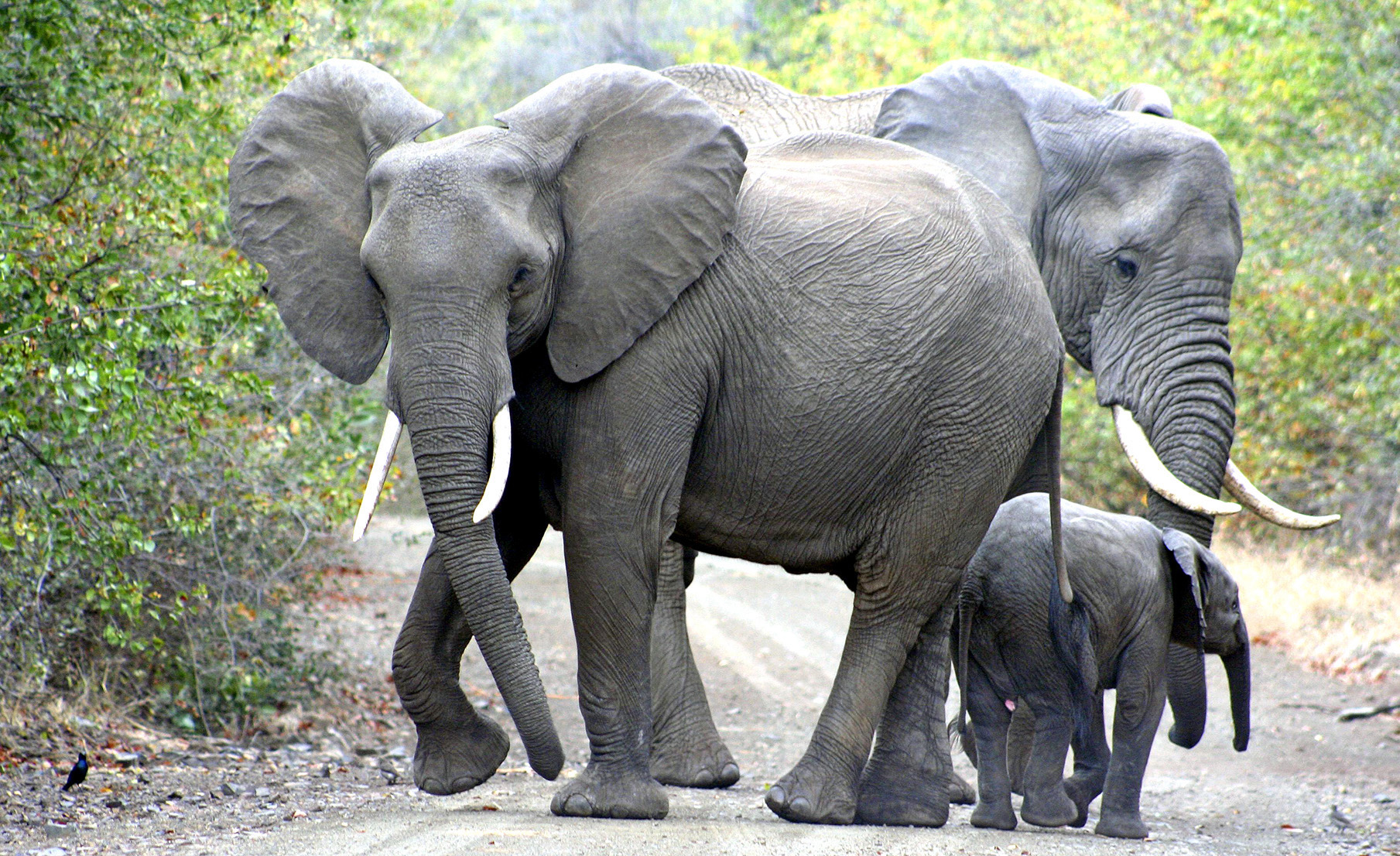
Elephants with a juvenile at the Kruger National Park, Limpopo. (Photo: Sarel van der Walt / Gallo Images)
The hunt evidently sparked a “vigorous debate” on WhatsApp by Grietjie landowners furious about the incident, including about the helicopter chase on their land. In a letter to the landowners, Ian Nowak, the general manager of Balule, apologised, but said Maseke Reserve “conducted the hunt in accordance with the requirements and protocols”, that the hunt was legal and that no protocol violations were committed. Balule provides the overall administrative system for Maseke, with both situated within the APNR.
HSI/Africa rejected this assurance. Gerrans said, “We are horrified by this unnecessary tragedy. Given the high court’s interdict prohibiting the permitting of elephant hunts, the letter’s conclusion that this hunt was lawful is incorrect.
“Furthermore, no animal should ever experience the pain and suffering that this elephant endured. The practice of trophy hunting is not only profoundly inhumane but also poses a grave threat to our biodiversity and tarnishes South Africa’s global reputation as a sustainable and responsible tourist destination. To injure, chase and kill any animal in this way is unacceptable.”
Hunting in the APNR
The hunt, apart from its obvious cruelty, raises wider questions about hunting in the APNR. These reserves are unarguably prime or even core wildlife areas. And because there are no fences between the APNR and the Kruger Park, by “supporting” APNR annual offtake quotas as it does, Kruger is essentially giving permission to hunt animals which it’s obliged by law to protect — with permits being granted by the provincial authority.
Within the APNR, some reserves, such as parts of Balule, Klaserie, Timbavati and Umbabat, allow hunting and others do not. Animals can move freely across the borders of neighbouring reserves, which means that protected animals from one reserve or even the Kruger Park can be killed by trophy hunters within another reserve.
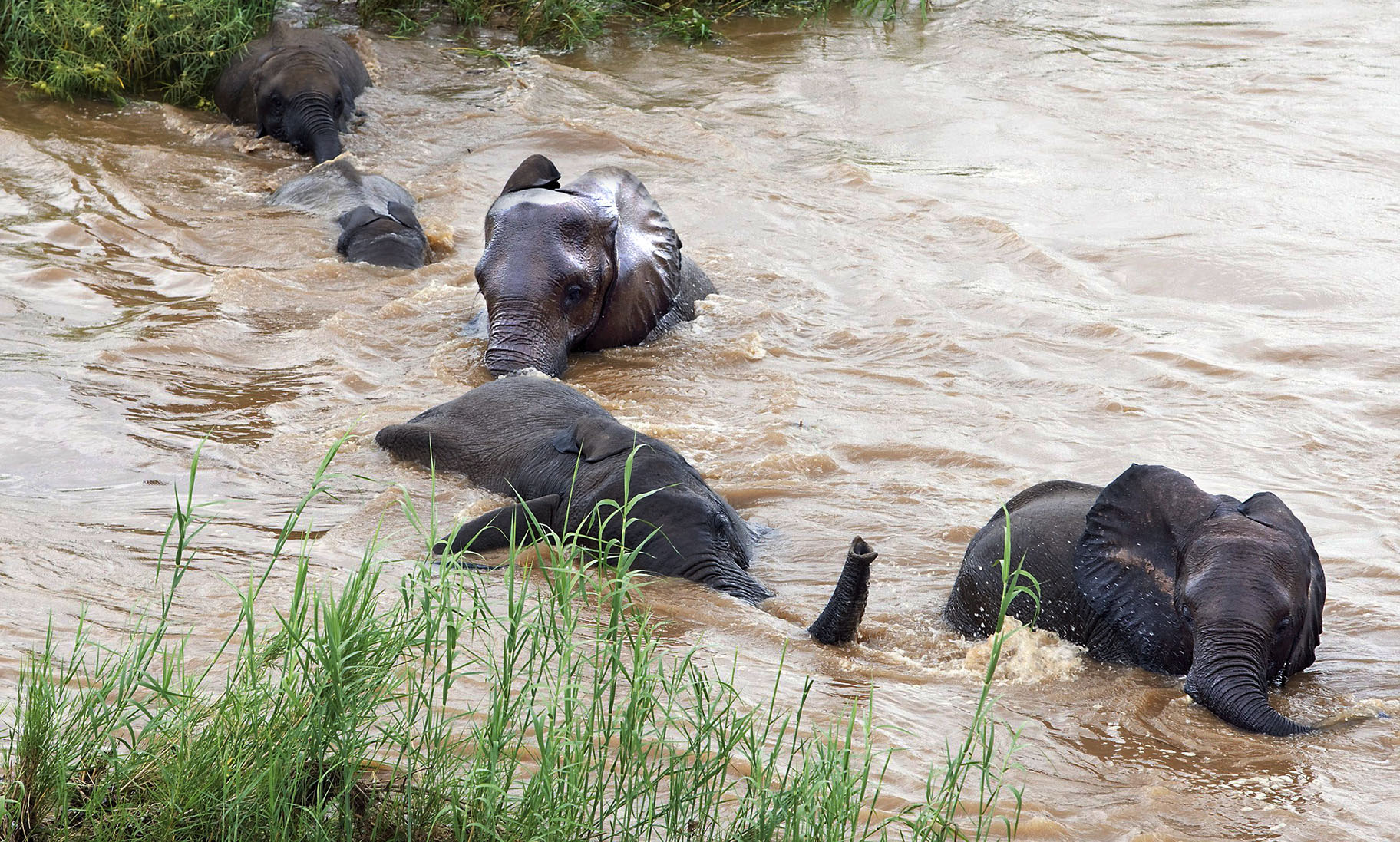
Olifants Camp and the private Balule Camp in the central Kruger National Park, Limpopo, give you acess to the mopane shrubveld of the north as well as the game-rich plains to the south. Elephants swim across the Olifants River. (Photo: Gallo Images / GO! / Villiers Steyn)
Each year the APNR is allocated quotas for the hunting of a range of animals. According to Nowak, it has permission to shoot 50 elephants annually. Of these, Balule is allocated 22 and Maseke, in turn, has a licence to hunt 12. He says the APNR quota “is to allow for better breeding opportunities for the average and above average bulls.” Elephant experts we contacted called that unscientific nonsense.
Questions have also been raised about general hunting offtakes in the APNR. In reply to a parliamentary request for these numbers for 2022/23 and 2023/24, Environment Minister Barbara Creecy said that SANParks was not at liberty to release them and that the request should be routed to the relevant provincial authorities. It is unclear why the minister should not wish to provide the information requested as it is certainly in the possession of her department and comprehensive replies have been provided to similar requests in previous years.
In 2021/22, SANParks supported the hunting of 4,449 animals (including 55 elephants, 64 buffaloes, 26 kudus, four warthogs, three hippos, nine hyenas, six giraffes and 4,265 impalas) in the APNR.
The proceeds
In 2019 (the only year for which financial figures could be obtained) hunting netted Balule estates alone R2.8-million, according to their financial statements. However, a desktop calculation using the SA Professional Hunters’ standard rates, estimates income attributable to the hunting of animals allocated to Balule to be R10.9-million. So who received the difference of R8-million?
On the same basis, hunting income for the entire APNR was estimated to be R29-million, of which R17-million was disclosed by the APNR representatives to the Parliamentary Environmental Affairs oversight committee as having been received. Of this, only 9% was declared as having been used for community outreach.
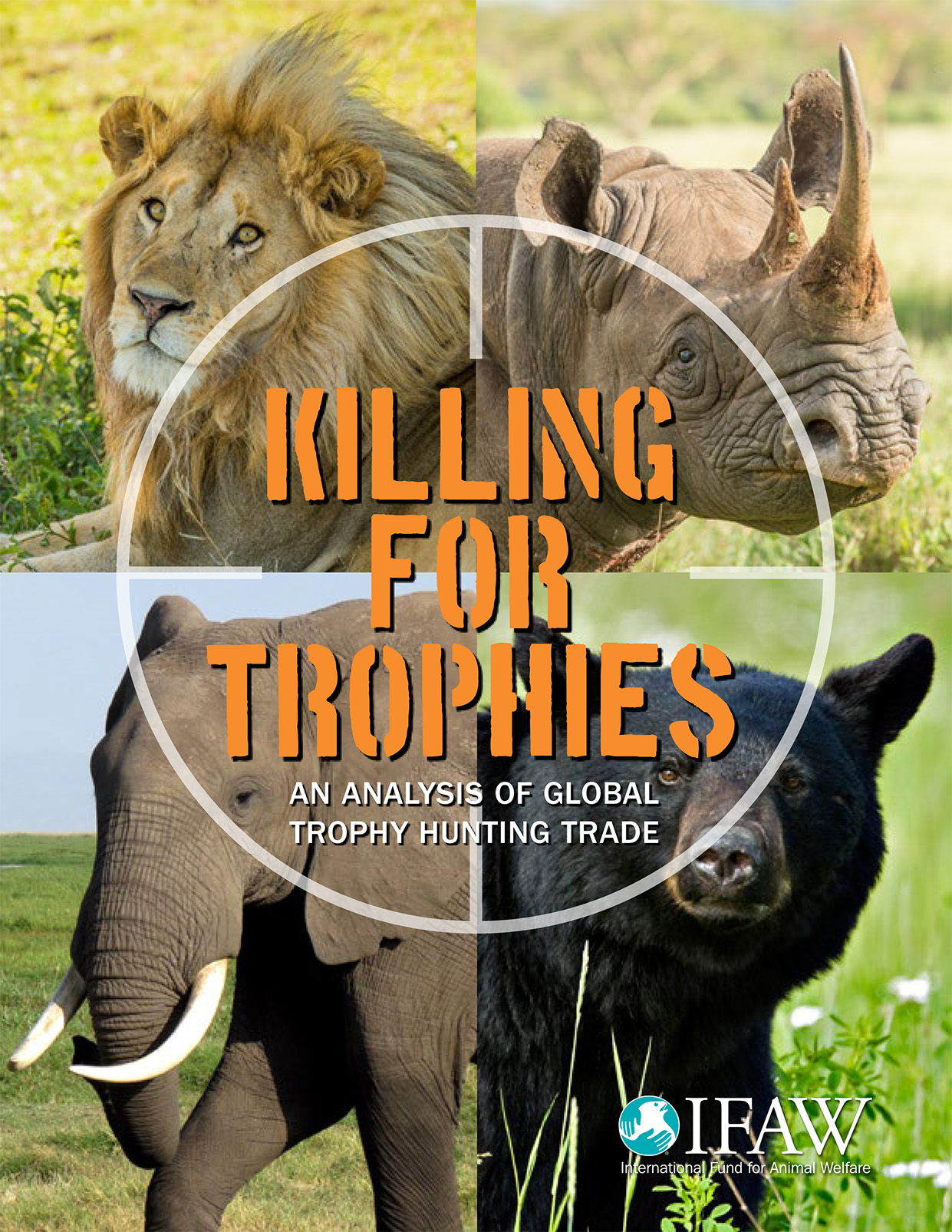
‘Trophy hunting’, specifically, is a form of hunting in which the hunter’s explicit goal is to obtain the hunted animal’s carcass or body part, such as the head or hide, as a trophy that represents the success of the hunt. (Image: ifaw / Wikipedia)
The wider question is about the hunting of rare and protected animals. According to Gerrans, the latest incident “once again demonstrates the inhumanity of hunting sentient animals merely for bragging rights and to display parts of their bodies as trophies on a wall. Too many endangered and threatened animals continue to suffer and die within so-called nature conservation reserves in what is best described as a blood sport.
“HSI/Africa has challenged the way this horrifying activity is permitted by the government, and we call on all South African wildlife administrators to abide by the high court order which prohibits the permitting of elephant, leopard and black rhino hunts until such time as the court can rule on the merits of the permitting process.”
With clients who can’t down an elephant and professional hunters who seemingly can’t provide the coup de grâce when the clients miss, this means that a miserable fate awaits another 11 elephants for which hunting permits have been issued in Maseke. DM
Read Balule Nature Reserve’s response below
The Balule Nature Reserve Association (“BNRA”) has noted the publication of the article client titled “Balule trophy hunt – how not to shoot an elephant” on the Daily Maverick’s website on 12 September 2023. It was not approached for its comment prior to the publication of this article, and wishes to record its response.
The hunt, which forms the subject of the article, was conducted legally in terms of a permit issued by the Limpopo Economic Development, Environment and Tourism Department (“LEDET”) and within the Greater Kruger Hunting Protocols developed and endorsed by all the signatories to the Great Limpopo Transfrontier Conservation Area (“GLTFCA”) Cooperative Agreement.
The court order referenced in the article (and to which a link in the article is included) does not prohibit “the allocation of permits for trophy hunting of African elephants, leopards and black rhinos in South Africa”, as is alleged by the article and by the Humane Society International.
The interdict in question applies only to the Convention on International Trade in Endangered Species of Wild Fauna and Flora (“CITES”) export permits in respect of leopards, black rhinoceroses and African elephants. The court order itself notes that the “overall purpose of CITES is to regulate the worldwide trade in endangered species of, inter alia, wild animals and plants”. Consequently, the interdict does not apply to any off-take or hunting permits issued to South African residents.
In the case of the hunt in question, the hunter was a South African resident who held a permit lawfully issued by the LEDET. The hunt was conducted legally and in accordance with all the requisite Greater Kruger Hunting Protocols.
The BNRA stands by the conclusions contained in the letter from Ian Nowak dated 5 September 2023: the hunt was legal, no protocol violations were committed and the pursuit of and follow-up shots on the elephant were consistent with the requirements contained in the Greater Kruger Hunting Protocol.
As is also stated in the letter, the BNRA’s annual off-take of animals is determined by the Associated Private Nature Reserve ecological panel, reviewed and then endorsed by SANParks and the biodiversity arm of LEDET. The off-take recommendation extends to a number of different species, including elephants, buffalo, impala, kudu and waterbuck. Approximately 50 below-average-sized elephants are removed from reserves falling under the Associated Private Nature Reserve annually in order to allow for better breeding opportunities for the average and above-average bulls. The off-take recommendation and allocation is based on scientific data and does not amount to “unscientific nonsense”, as is alleged by the unnamed elephant expert in the article.
All revenue generated from the hunting of these animals must be, and is, spent on conservation, wildlife security and community upliftment by BNRA and the Maseke Game Reserves, respectively. The meat from the elephant hunted on the Maseke Game Reserve was used to feed approximately 250 children and old-aged members of the community, in terms of BNRA’s and the Maseke Game Reserve’s outreach program’s ongoing community feeding scheme.
The BNRA denies any insinuation that the proceeds generated from hunting are spent in any other fashion. The Balule Nature Reserve is a federal system, and the income generated from hunting reflects this: the income is received at the level of the BNRA and at the level of individual regional members (e.g., Maseke Game Reserve). Equally, expenditure on conservation is incurred at both a BNRA level and at the level of individual regional members.
The article does not deal with this system and, consequently, creates a false discrepancy by comparing the income received and reported by the BNRA individually with the total income which should have been received by the BNRA and all the regional members combined.
The BNRA does not condone any illegal activity whatsoever, and especially not the illegal killing of any animals within a protected area it is tasked to manage. It works tirelessly to protect and conserve the sustainability of the biodiversity of the fauna and flora both in terms of the law and the protocols of the Greater Kruger’s Open System. DM











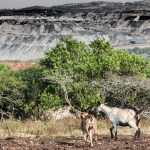









“From beasts we scorn as soulless,
In forest, field and den,
The cry goes up to witness
The soullessness of men.”
M. Frida Hartley
In Answer to Balule’s spin on my story: It conveniently leaves out anything about pumping 8 bullets into an elephant and chasing it, wounded, by helicopter. The Norms and Standards of the Management of Elephants in SA (a legal document), recognises that elephants are sentient, that stressing an elephant must be avoided, they may not be treated in an inhumane or unethical way and must be safeguarded from abuse. It is prohibited to drive an elephant (that includes by helicopter). Further, NEMBA (environment management laws) insists on their well-being, which shooting it 8 times certainly violates. As to the legality of the hunt, in a High Court Interdict Judge Gamble interdicted the government from issuing any permit to hunt or export an elephant (nothing to do with CITES). That interdict stands until 22 January 2024 when the matter will be reviewed. In terms of this, the Balule hunt was illegal. On every front, Balule was and is totally out of line here and engaging in unacceptable and illegal behaviour. I stand by my story.
Sufficient guns and expertise were on hand and well within legal requirements and guidelines for harvesting elephants. It was unfortunate that this elephant wasn’t immobilised, but then chickens, for example, have been known to run around with their heads removed. It can be misinterpreted.
Reality of high velocity bullets and their hydrostatic shockwaves suggests that this elephant was more disorientated than suffering.
It crossed an unfenced border into a non-hunting area, so a helicopter was mustered to get it back again. No choice.
The ban applies only to hunting trophies for export under CITES and was, in any case a technical matter, hinged on “there isn’t an accurate count of elephants in South Africa, so a quota cannot be set”. Balule knows precisely how many elephants it has – 1851, so 22 lesser bulls are far less than the birthrate, a serious matter – 1851 and carrying capacity is estimated at 250 max. They have stripped Bulele of 65% of its 3m+ trees and much of the dense understorey. This, in turn has already affected giraffes and removed cover for animals like kudu, bushbuck and nyala, now subject to pressure from lions.
It’s what happens when well-meaning rich foreign idealists and their local apologists get involved in matters they don’t really understand or don’t want to understand.
Lesser bulls are those that fall well below the average tusk size/age graph, taken from thousands of real measurements. Those above the line are safe.
It’s unfortunately impossible to guarantee that hunts are successful at the first shot every time. Many animals have been recorded showcasing “impossible” reactions after being shot directly: some even kill or maim the hunter. It happens and cannot be avoided.
Balule did the right thing to chase down the injured animal and spare it from suffering. If you insist on condemning their use of a helicopter, then you should advocate that they instead let the injured animal run away, either to die from it’s wounds, die from exposure, or live in crippled pain and starve to death later. We should applaud Balule for spending funds in order to ensure that the animal was spared from suffering as soon as possible. This shows that Balule truly cares for animal welfare, more than those who condemn them for using a helicopter.
If Balule understand the importance of elephant culling, which is necessary in all Southern African parks, then why condemn them for privatizing their culling with “hunters”? They’ve figured out how to protect biodiversity, while also raising critical funds.
Balule did not operate recklessly, or EVER engage in “unacceptable and illegal” behavior. They were well equipped and well led. They expertly adjusted to changes in unexpected situations. You seem to attempt to portray Balule as desiring to fire 8 shots and then purposefully pursue a creature in order to inflict additional suffering. This is false.
I’d like to question your claim that “the Balule hunt was illegal.”